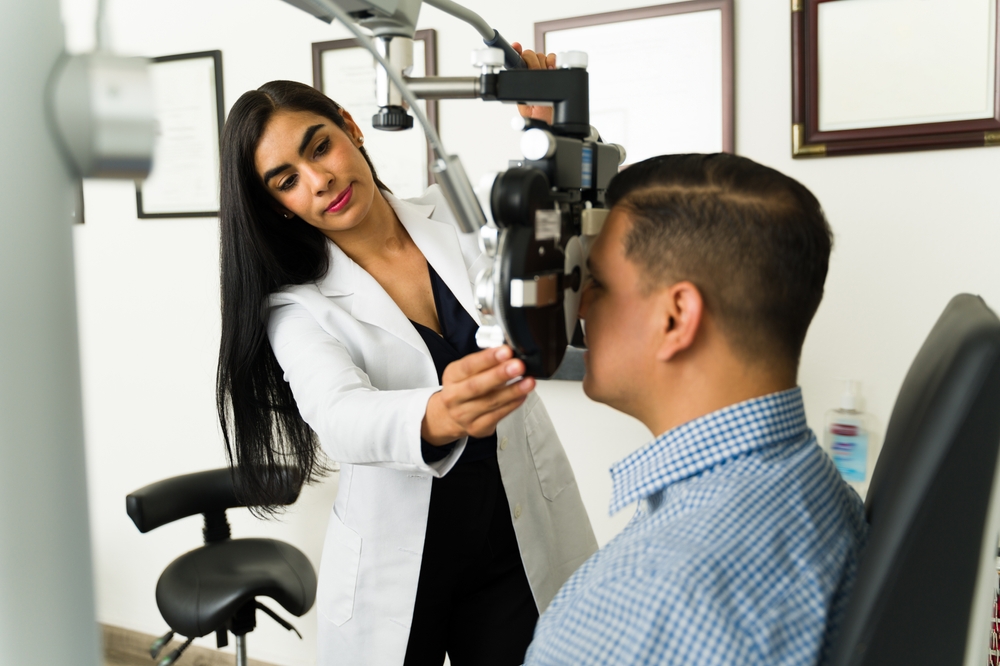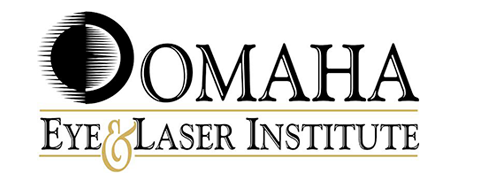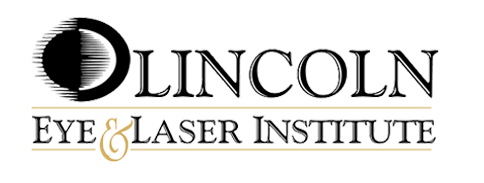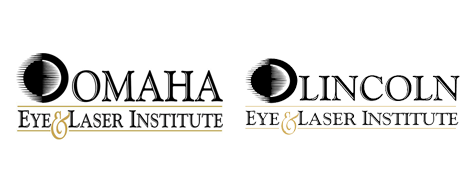While winter can be an exciting season full of holiday gatherings, fun outdoor sports, and beautiful white landscapes, it does pose certain threats to your eye health. This season, you can protect yourself against things like dry eye, eye injuries, and UV exposure by following simple tips and prioritizing the health of your eyes.
Keep reading to learn how to keep your eyes healthy and happy with these 7 tips this season!
1. Don’t Forget Sunglasses

Most people remember to wear sunglasses in the summer, but it’s just as important in the winter. Even on cloudy days, UV rays from the sun can harm your eyes.
If you’re around snow, it’s especially important to wear sunglasses. Snow reflects sunlight, intensifying UV rays.
Be sure to wear high-quality sunglasses when you go outside or while driving during the day. High-quality sunglasses that block out at least 99% of UV rays are optimal for eye protection.
2. Be Mindful About Screen Time
During the colder months, you may find yourself spending more time indoors, watching TV or scrolling through your phone. However, prolonged exposure to screens can lead to eye strain, dry eyes, and headaches.
Blue light from screens is hard for your eyes to process, which leads to less blinking, drier eyes, and more strain. The best thing you can do to reduce digital eye strain is to limit your screen time.
When on your device, adjust it to “warm light” mode to minimize blue light, and use glasses with an anti-reflective coating. Also, you can practice the 20-20-20 rule: for every 20 minutes you look at a screen, take a 20-second break and focus on something 20 feet away.
This gives your eyes a brief rest and encourages blinking.
3. Hydrate and Eat Right

In winter, you may not feel as thirsty as you do in the summer, but hydration is still vital to your eye health. Cold air can lead to dehydration, which can worsen dry eyes.
To stay hydrated, ensure you’re drinking enough water. A balanced diet can also help keep your eyes healthy.
Soups are a great option in the winter. They’re hydrating and nourishing and can be packed with nutrients that benefit your eye health.
Omega-3 fatty acids, found in fish, seeds, and walnuts, also promote healthy tear production, which is essential for preventing dry eyes. You can opt for omega-3 fatty acid supplements, but be sure to check with your doctor before taking any new medication.
4. Practice Eye Safety
Winter sports can be fun, but they also come with risks to your eye health. Always wear safety equipment like goggles when skiing, snowboarding, or sledding.
Tinted goggles help protect your eyes from potential injury and harmful UV rays.
5. Stay Active
Winter can make it tempting to stay indoors, but it’s essential to remain active. Regular exercise keeps your heart and circulatory system healthy, which, in turn, benefits your eye health.
Heart disease and circulatory problems, like high blood pressure, increase the risk of eye conditions. So staying active is essential for your eye health as well as your overall health.
Even if you’re not a fan of winter sports, you can get outdoors for a short walk to get some fresh air and sunlight, as long as you make sure to wear UV-protective sunglasses. You can also try indoor activities like yoga, pilates, or simple home workouts to stay active when it’s too cold outside.
6. Be Careful with Indoor Heating
Indoor heating can be just as harsh on your eyes as the cold, dry air outside. Dry heat from heaters can cause or worsen dry eyes.
To minimize this, try lowering your thermostat and use a humidifier to keep moisture in the air. Avoid sitting or sleeping too close to air vents, which can dry out your eyes.
7. See Your Eye Doctor

Winter is a great time to schedule your routine eye exam. If you wear glasses or contacts, or if you’re at risk for age-related eye conditions, make sure to visit your eye doctor regularly.
Comprehensive eye exams can catch issues early and ensure your eye health stays on track. This is especially important if you’re over 40, as age-related eye conditions become more common and can cause vision loss if left untreated.
How often you should undergo comprehensive eye exams with your ophthalmologists at Omaha Eye and Laser Institute depends on various factors, including your age, family history, medical history, and any symptoms you may be experiencing. If you are at a higher risk for common eye conditions like glaucoma and age-related macular degeneration, your eye doctor will likely recommend more frequent eye exams to prevent vision loss and detect signs early.
Do you want to learn more about protecting your eyes this winter? Take the first step by scheduling an appointment at Omaha Eye and Laser Institute in Omaha, NE, today!





